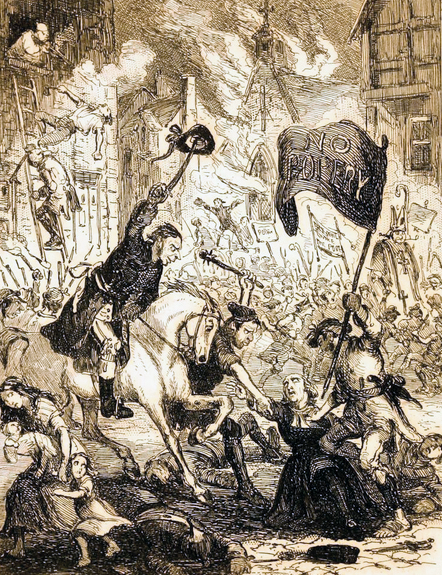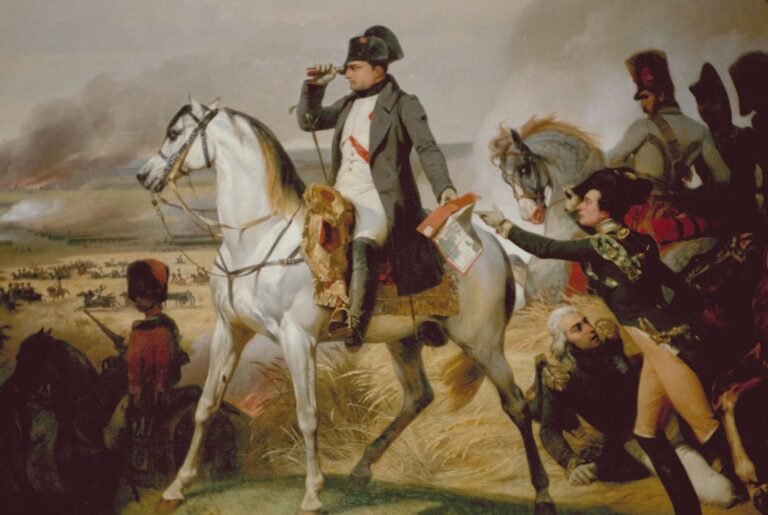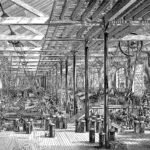John Locke was a prominent philosopher in the 17th century. His ideas shaped modern political thought and individual rights.
John Locke’s theories on government and human nature influenced many. He believed in natural rights—life, liberty, and property. Locke argued that governments should protect these rights. If a government fails, people have a right to change it. His thoughts on education and the mind were also groundbreaking.
Locke’s “tabula rasa” concept suggested that the mind is a blank slate at birth. Experiences shape knowledge. His works, like “Two Treatises of Government,” remain relevant today. Studying Locke helps us understand the roots of democracy and personal freedom. His legacy continues to inspire thinkers around the world.

Credit: en.wikipedia.org
Early Life And Education
John Locke, a renowned philosopher, had a significant impact on modern political thought. His early life and education laid the foundation for his influential works.
Birth And Family Background
John Locke was born on August 29, 1632, in Wrington, England. He was the son of John Locke Sr. and Agnes Keene. His father was a lawyer, and his mother came from a well-to-do family. Locke grew up in a modest household, but his family valued education highly.
Locke’s early years were spent in a rural setting. His father was a captain in the Parliamentary army during the English Civil War. This background influenced Locke’s later thoughts on governance and individual rights.
Academic Pursuits
In 1647, Locke enrolled at the prestigious Westminster School in London. He excelled in classical studies and developed a keen interest in philosophy and science. His time at Westminster laid the groundwork for his future academic achievements.
In 1652, Locke entered Christ Church, Oxford. At Oxford, he studied logic, metaphysics, and classical languages. Although the curriculum was traditional, Locke was drawn to the works of modern philosophers like René Descartes. He earned his Bachelor’s degree in 1656 and his Master’s degree in 1658.
Locke’s interest in experimental science grew during his time at Oxford. He befriended Robert Boyle, a prominent scientist, and joined the Royal Society. This exposure to scientific methods influenced his later works on empiricism and the nature of knowledge.
| Year | Milestone |
|---|---|
| 1632 | Birth in Wrington, England |
| 1647 | Enrollment at Westminster School |
| 1652 | Entry to Christ Church, Oxford |
| 1656 | Bachelor’s Degree |
| 1658 | Master’s Degree |
Locke’s early education and exposure to different philosophies shaped his thinking. These formative years played a crucial role in developing his theories on human understanding and government.
Philosophical Foundations
John Locke stands as a giant in the realm of philosophy. His ideas form the bedrock of modern thought. He challenged the status quo and sought truth through reason and experience. Let’s delve into two key aspects of his philosophy.
Empiricism
Locke is often hailed as the father of empiricism. He believed that knowledge comes from sensory experiences. This view opposes the idea that we are born with innate knowledge. For Locke, our understanding of the world grows from what we see, hear, touch, taste, and smell.
Empiricism emphasizes observation and evidence. This approach laid the groundwork for the scientific method. Locke’s ideas influenced many later thinkers and shaped the Enlightenment.
Tabula Rasa Concept
The “Tabula Rasa” concept is central to Locke’s philosophy. It means “blank slate” in Latin. Locke argued that our minds start as a blank slate. We are born without built-in mental content. Experiences and perceptions write knowledge onto this slate.
This idea was revolutionary. It suggested that humans are shaped by their environment and experiences. Education and upbringing play crucial roles in our development. This concept shifted views on human potential and learning.
Political Theory
John Locke was a prominent philosopher whose political theories have greatly influenced modern democracy. His ideas about government, liberty, and the role of the state continue to resonate. Locke’s concepts of natural rights and the social contract are essential to understanding his political philosophy.
Natural Rights
Locke believed in natural rights that every person is born with. These include the right to life, liberty, and property. According to Locke, these rights are inherent and cannot be taken away. He argued that the main role of government is to protect these rights.
Locke’s ideas challenged the traditional notion of absolute monarchy. He believed that rulers should not have unlimited power. Instead, their power should be limited by laws. This idea laid the groundwork for modern democratic systems.
Social Contract
The concept of the social contract is another cornerstone of Locke’s political theory. He proposed that governments are formed through a social contract with the people. In this contract, individuals consent to give up some of their freedoms. In return, the government provides protection and order.
Locke argued that if the government fails to protect the natural rights of the people, they have the right to revolt. This idea was revolutionary and inspired many democratic movements worldwide.
| Concept | Description |
|---|---|
| Natural Rights | Inherent rights to life, liberty, and property |
| Social Contract | Agreement between people and government for protection |
Locke’s political theory emphasizes the importance of individual rights and limited government. His ideas continue to influence political thought and democratic practices around the world.

Credit: www.history.com
Influence On Modern Democracy
John Locke’s ideas have shaped modern democracy. His thoughts on liberty, equality, and government impacted political systems worldwide. Locke’s writings influenced the creation of fair and just societies. His legacy continues to inspire democratic values today.
Impact On American Founding Fathers
Locke’s philosophy influenced the American Founding Fathers. His ideas on natural rights and government by consent shaped the U.S. Constitution. Locke’s belief in life, liberty, and property inspired the Declaration of Independence. Thomas Jefferson, James Madison, and other key figures read and applied Locke’s works. Locke’s ideas helped form a government that protects individual freedoms.
Legacy In Western Political Thought
Locke’s legacy extends beyond the United States. His ideas influenced Western political thought widely. Many European philosophers and politicians studied Locke’s works. His concepts of liberty and equality became foundations for modern democracies. Locke’s impact is evident in the principles of many democratic nations today.
Contributions To Education
John Locke made significant contributions to education. His ideas influenced many educational practices. Locke’s thoughts on education emphasized the development of a child’s mind. His work continues to shape modern pedagogy today.
Thoughts On Education
Locke believed in nurturing a child’s natural curiosity. He argued against rote memorization. Instead, he promoted learning through experiences. Locke emphasized the importance of a sound mind and body. He advocated for physical activity and healthy living. His approach was holistic, focusing on overall well-being.
Locke also stressed the role of the environment. He believed it shapes a child’s development. He suggested that learning should be enjoyable. This makes education more effective and lasting.
Influence On Modern Pedagogy
Locke’s ideas laid the foundation for modern education. Many of his principles are still in use today. Schools now focus on developing critical thinking skills. They also encourage active learning. These practices reflect Locke’s emphasis on experience-based education.
His thoughts on the environment’s role are also significant. Modern classrooms are designed to be engaging. They aim to create a positive learning atmosphere. Locke’s influence is evident in child-centered education. This approach tailors learning to each student’s needs.
John Locke’s contributions to education remain relevant. His ideas continue to inspire educators worldwide. They shape how children learn and grow. Locke’s legacy in education is enduring and impactful.
Religious Views
John Locke’s religious views were key in shaping his philosophical ideas. His thoughts on religion influenced his theories of government and individual rights. Locke believed in a rational and tolerant approach to religion. He sought to create a society where different religious beliefs could coexist peacefully.
Views On Tolerance
Locke’s views on tolerance were groundbreaking for his time. He argued that no single church or religious authority should dominate. He believed that individuals should have the freedom to practice their religion without interference. Locke’s ideas on tolerance are evident in his letters and essays. He emphasized that religious tolerance leads to a more peaceful and stable society.
Separation Of Church And State
Locke also advocated for the separation of church and state. He argued that the government should not impose religious beliefs on its citizens. This separation ensures that no religion gains undue power over others. Locke believed that the state should protect the rights of all individuals, regardless of their religious beliefs. This idea was revolutionary and influenced modern democratic societies.
Locke’s principles on the separation of church and state can be summarized as follows:
- Government should remain neutral in religious matters.
- Individuals have the right to practice their religion freely.
- Religious institutions should not control government policies.
These principles helped lay the foundation for modern secular states. Locke’s thoughts on religion continue to be relevant today. His ideas on tolerance and separation of church and state are essential to understanding his broader philosophical contributions.
Major Works
John Locke made significant contributions to philosophy and political theory. His major works have influenced many. They are still studied and debated today.
An Essay Concerning Human Understanding
An Essay Concerning Human Understanding is one of Locke’s most important works. Published in 1689, it explores the nature of human knowledge. Locke argues that the mind is a blank slate at birth. He believes all knowledge comes from experience. This idea is known as empiricism.
In the essay, Locke discusses the importance of simple ideas and complex ideas. Simple ideas come from basic experiences. Complex ideas are formed by combining simple ideas. He also explores the concepts of identity and the self.
| Key Concepts | Description |
|---|---|
| Tabula Rasa | The mind is a blank slate at birth. |
| Empiricism | Knowledge comes from experience. |
| Simple Ideas | Basic experiences. |
| Complex Ideas | Combination of simple ideas. |
Two Treatises Of Government
Two Treatises of Government is another important work by Locke. Written in 1689, it lays the foundation for modern political philosophy. The first treatise refutes the idea of the divine right of kings. Locke argues that no one has a God-given right to rule others.
The second treatise presents Locke’s theory of government. He argues for a social contract. People agree to form a government to protect their natural rights. These rights include life, liberty, and property. If a government fails to protect these rights, the people have the right to rebel.
- Refutation of divine right
- Social contract theory
- Natural rights: life, liberty, property
- Right to rebel against unjust government
Locke’s ideas in the Two Treatises of Government have had a lasting impact. They influenced the development of modern democracies. They inspired the American and French revolutions.
Criticism And Controversies
John Locke, the famous English philosopher, faced many criticisms and controversies during his life. His ideas on government, human nature, and knowledge sparked debates among his contemporaries and modern scholars. Below, we will explore some of the main criticisms and controversies surrounding Locke.
Critiques From Contemporaries
Locke’s contemporaries had mixed reactions to his ideas. Some praised his theories, while others strongly disagreed.
| Critic | Criticism |
|---|---|
| Thomas Hobbes | Disagreed with Locke on the state of nature and government. |
| Robert Filmer | Believed Locke’s views on political power undermined traditional authority. |
- Thomas Hobbes argued that Locke’s state of nature was too optimistic.
- Robert Filmer felt Locke’s ideas threatened the divine right of kings.
Modern Interpretations And Debates
Modern scholars continue to debate Locke’s philosophies. His theories on liberty, property, and government remain controversial.
- Liberty: Some argue that Locke’s view of liberty is too individualistic.
- Property: Locke’s ideas on property rights raise questions about inequality.
- Government: Critics believe Locke’s model of government is idealistic.
Locke’s influence on liberal thought is undeniable. Yet, his ideas face scrutiny from various perspectives.
Despite the controversies, Locke’s work continues to inspire and provoke thought. His contributions to philosophy and political theory remain significant.
FAQs
Who Was John Locke?
John Locke was a 17th-century English philosopher and physician. He is widely regarded as the “Father of Liberalism. “
What Are John Locke’s Main Ideas?
John Locke’s main ideas include the social contract, natural rights, and government by consent. He emphasized life, liberty, and property.
How Did John Locke Influence Modern Philosophy?
John Locke’s theories on government and human understanding influenced Enlightenment thinkers. His work laid the groundwork for modern democracy.
Why Is John Locke Important?
John Locke is important for his contributions to political theory and philosophy. His ideas shaped modern concepts of governance and individual rights.
Conclusion
John Locke’s ideas shaped modern democracy. His thoughts on liberty inspire us today. Locke believed in individual rights and government by consent. These concepts remain vital in our society. His philosophy promotes freedom and justice. Learning about Locke helps us understand our own rights.
His work encourages us to think critically about authority. We appreciate his contributions to political thought. John Locke’s legacy continues to influence our world. His writings are a cornerstone of democratic values. Understanding Locke enriches our knowledge of history and governance.








